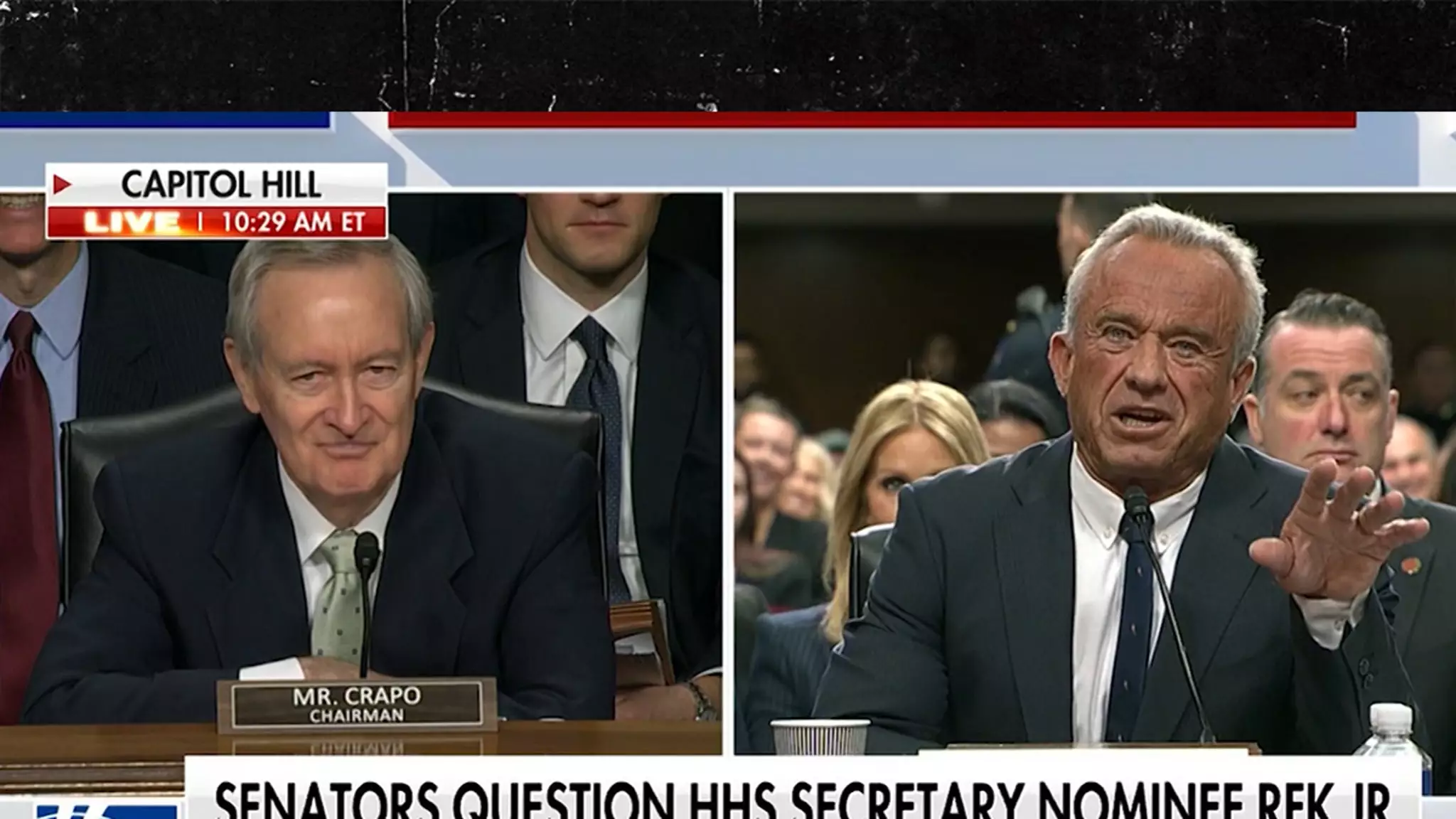The nomination of Robert F. Kennedy Jr. as the Secretary of Health and Human Services (HHS) has generated significant debate surrounding his positions on public health, particularly regarding vaccines. Interestingly, while he campaigns with the motto “Make America Healthy Again,” this slogan seems at odds with several of his statements and associations, including those with former President Donald Trump, whose dietary preferences have been widely critiqued.
During his recent confirmation hearing, Kennedy’s position was scrutinized not only for what he proposed but also for how he catered to Trump’s preferences, particularly regarding food industry staples. In reassuring senators, he emphasized that he wouldn’t ban popular fast food items like McDonald’s cheeseburgers or sugary sodas, reflecting an apparent need to balance health initiatives with public sentiment and the interests of his potential boss. This duality raises questions about the sincerity of his health reform agenda and whether it might be undermined by political obligations.
The Humor Behind the Seriousness
The atmosphere during the hearing was marked by moments of levity. Kennedy’s humorous comments about beloved food products elicited laughter from attendees, including his wife. However, the question remains whether such humor serves to fortify trust or trivialize serious health discussions. The interplay between comedy and public health, especially in the context of an administration that often veers toward informal interaction, could indicate a troubling detachment from the gravity of health issues.
Kennedy’s confirmation process has also exposed familial rifts, particularly between him and his cousin, Caroline Kennedy. The criticism from Caroline, who questioned his lack of relevant experience, illustrates how political and personal ties can become entangled in public service discussions. It highlights the perplexing nature of family loyalty when substantial disagreements arise regarding fitness for public office, particularly in the domain of health—a field that greatly impacts livelihoods and well-being.
Further complicating Kennedy’s nomination is his controversial stance on vaccines, which he adamantly describes as “pro-safety.” His assertions have led to protests during his hearing, underscoring the polarized views on health and vaccines in contemporary discourse. The stark division among the public, medical community, and even within his own family reflects a broader national dialogue on what constitutes safety in public health policy.
As Kennedy’s confirmation hearing continues to unfold, the wider implications for public health policy are profound. The intersection of personal beliefs, family dynamics, and political loyalties creates a unique and complex environment for addressing health issues in America. Observers will undoubtedly be watching closely as Kennedy navigates these challenges. Ultimately, the outcome may shape not only his career but also the future of health policy in a nation grappling with fundamental questions about health, safety, and governance.

Leave a Reply